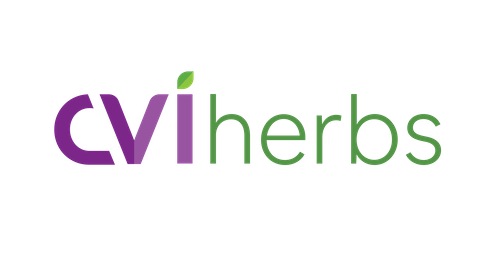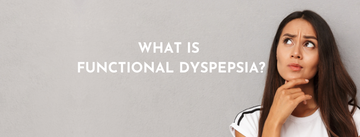Abdominal pain caused by ulcerative colitis can make life difficult. If you're dealing with this type of pain, there are treatments you can discuss with your doctor to help you feel better.
About Ulcerative Colitis & Abdominal Pain
Ulcerative colitis is a condition where your digestive tract gets inflamed, leading to sores in your colon and rectum. This inflammation can cause varying degrees of pain. The pain you feel can give clues about how severe the condition is or if it's getting worse.
The location of the pain depends on where the inflammation is in your colon. You might feel cramping and discomfort in your belly and bottom. Sometimes the pain is constant, and other times it comes and goes.

During times when the inflammation calms down, your symptoms may improve or go away completely.
- If the condition is mild, you might just feel a bit of pressure or cramping. But as it gets worse, the pain can become stronger and feel like squeezing or tightness, often with lots of trips to the bathroom and bloating.
- If you have a specific type of ulcerative colitis that affects the left side of your colon, you might feel soreness on the left side of your belly.
If you don't treat ulcerative colitis, the pain can disrupt your daily life. But with the right medication, stress management, and diet changes, you can control and ease the pain. Your doctor might suggest a mix of medications, dietary changes, and other therapies to help you manage the pain and get back to feeling better.
Types of Ulcerative Colitis
Ulcerative colitis causes inflammation that starts in the rectum, near the anus, and then moves up to affect the colon.
Depending on which part of the colon is inflamed, this condition is categorized into different types:
1. Ulcerative Proctitis
- Inflammation is limited to the rectum. Sometimes it doesn't spread to the colon at all, but in less common cases, it may reach the lowest part of the colon near the rectum.
2. Ulcerative Pancolitis
- Inflammation starts in the rectum and spreads to the entire colon.
3. Ulcerative Distal Colitis
- Inflammation affects the rectum and only the left part of the colon. This type is also called ulcerative-limited colitis because the inflammation is restricted to one portion of the colon.
It's important to note that the degree of inflammation in the colon and rectum can vary. In many cases, the inflammation in the rectum, which is a small area near the anus, is more severe than in any or all parts of the colon.
Ways to Manage Ulcerative Colitis And Abdominal Pain
Ulcerative colitis can cause a lot of pain, but there are ways to manage it. Here are some things you can do:
1. Over-the-counter Drug
If your pain is mild, you can try acetaminophen (Tylenol). But avoid other over-the-counter pain relievers like ibuprofen (Motrin IB, Advil), aspirin (Bufferin), and naproxen (Aleve, Naprosyn). These can make your symptoms worse.
2. Change Your Diet
Certain foods can worsen your symptoms, so it's best to avoid them. These include dairy products high in lactose, high-fat foods, processed foods, high-fiber foods, spicy foods, alcoholic beverages, and caffeinated drinks like coffee, tea, and cola. Eating several small meals throughout the day and drinking plenty of water can also help.

3. Strategies To Reduce Stress
Stress can trigger flare-ups of ulcerative colitis. Managing stress through techniques like walks in nature, deep breathing, yoga, mindfulness meditation, and exercise can help ease your symptoms.
4. Anti-inflammatory Drugs
These can help reduce inflammation in your colon and ease your pain. Corticosteroids like prednisone and hydrocortisone, as well as aminosalicylates like mesalamine, sulfasalazine, balsalazide, and olsalazine, are commonly used. They can be taken orally, as suppositories, or intravenously, but may cause side effects.
5. Immunosuppressants
Drugs like azathioprine, mercaptopurine, and cyclosporine can relieve pain by suppressing your immune system. They're usually used when other medications haven't worked, but they can have serious side effects.
6. Biologics
These are another type of immunosuppressive drug used for moderate to severe ulcerative colitis. They work by disabling proteins made by the immune system. Examples include infliximab and vedolizumab, but they can also have serious side effects.
7. Surgery
In severe cases, surgery may be necessary to remove the colon and rectum. This can provide relief from pain, but it's a major procedure with its own risks.
8. Complementary And Alternative Remedies
Techniques like acupuncture and moxibustion may help reduce symptoms and pain. However, more research is needed to confirm their effectiveness.
By working with your doctor and trying different treatments, you can find ways to manage your ulcerative colitis pain and improve your quality of life.
In Summary
Ulcerative colitis and abdominal pain can be managed through medications, dietary changes, stress reduction, and complementary therapies like acupuncture. Avoiding certain over-the-counter drugs and identifying trigger foods can help alleviate symptoms.
Medications such as anti-inflammatory drugs and immunosuppressants may be prescribed, while surgery may be necessary in severe cases. Complementary therapies like acupuncture may offer additional relief, but more research is needed to confirm their effectiveness.








